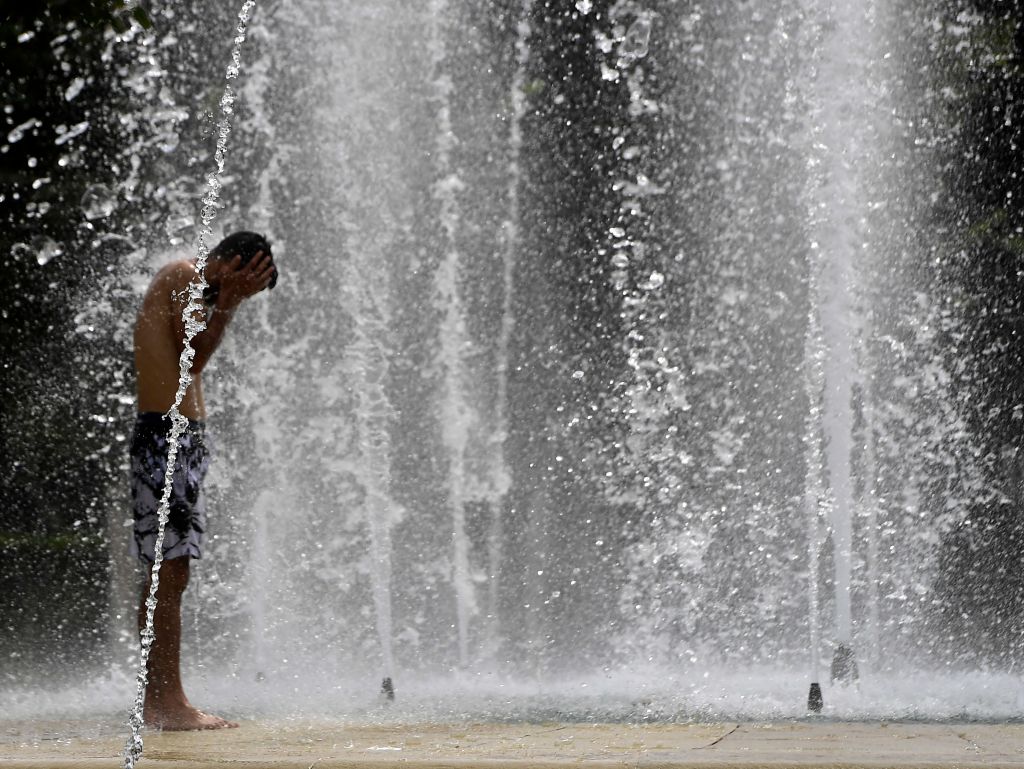
Planet A
A new report has concluded that the record-high temperatures currently affecting North America and parts of Europe would not have occurred without climate change. The analysis by World Weather Attribution found that Europe’s heatwave was 2.5°C hotter and North America’s was 2°C hotter than they would have been in the absence of global warming. According to the World Meteorological Organization, the likelihood of such events has increased sixfold since the 1980s. Temperatures have soared above 40°C for days in a row in some countries, and there is no immediate end in sight.
The heatwaves have brought greater attention to the climate crisis. Earlier this month, the US special envoy for climate change, John Kerry, attempted to persuade Chinese leaders to commit to tougher climate action during bilateral talks in Beijing. While the talks didn’t lead to any agreements, the resumption of communications between the world’s two largest polluters after a year of strained relations is a good sign for international climate cooperation.
Democracy watch
Israeli Prime Minister Benjamin Netanyahu secured parliamentary approval for the first phase of his proposed overhaul of the judiciary, despite the massive show of opposition from crowds of protesters. The legislative changes will remove the Supreme Court’s power to overturn ‘unreasonable’ government decisions.
Critics argue that the move will grant the government excessive power and jeopardise Israel’s system of checks and balances, ultimately leading to authoritarian rule and discriminatory policies. A White House spokesperson called the parliament’s decision ‘unfortunate’.
The demonstrations, which have been going on for months, intensified as the parliamentary vote loomed, with protesters marching from Tel Aviv to Jerusalem and forming human chains in various locations. More than 10,000 military reservists declared their intention to suspend their service and trade unions have been contemplating a general strike.
Information operations
The UK government has accused Russia of employing disinformation to exaggerate the significance of Russian forces’ military gains in Ukraine.
The latest intelligence update from the UK Ministry of Defence highlights an escalation in artillery fire and small-unit assaults during Russia’s recent offensive on Luhansk and Kharkiv. This surge in activity in northern Ukraine appears to be strategically crucial to the Kremlin, particularly as pressures mount in the south. However, the MoD believes that Russia’s progress has been minimal, despite its attempts to create a perception of success and strengthen its strategic and political position.
The MoD has accused Russia of spreading disinformation on multiple occasions, including about its reason for abandoning the Black Sea grain deal. While Moscow has said that the UN’s failure to uphold the agreement led to its departure, the MoD contends that the decision was made well in advance, based on the Kremlin’s assessment that the deal no longer served its interests.
Follow the money
China has announced that it will restrict exports of gallium and germanium, two so-called war minerals used in radar communication devices and other cutting-edge military technologies. In 2022, China supplied 98% of global output of gallium and 60% of germanium. China is by far the largest exporter of other rare-earth elements such as tungsten, vanadium, indium and antimony.
The new export controls have immediate and potentially lasting implications for the US military. According to the Pentagon, the US holds a strategic stockpile for germanium but has no reserves of gallium. Even though Congress has authorised US$1 billion to acquire strategic and critical materials, the US military’s industrial base will be vulnerable to supply squeezes for the foreseeable future.
Terror byte
Iran has filed a case with the International Court of Justice against Canada accusing it of breeching its international obligations and violating Iran’s sovereignty. At issue is Canada’s listing of Iran as a supporter of terrorism, which has allowed cases alleging support for terrorism to be filed against Tehran in Canadian courts. According to Iran, these civil damages cases, in addition to other legislative and executive measures taken by Canada over the years, constitute a failure to respect the immunities of Iran and its property. Iran’s demands include guarantees of non-repetition and compensation.
Canada listed Iran as a supporter of terrorism in 2012 and has since imposed various sanctions over alleged terrorism and human rights violations, the latest round of which was announced only a week before Iran filed its case. Iran’s application specifically identified Canada’s Justice for Victims of Terrorism Act, which allows victims to claim damages in Canadian courts.
The case is likely to raise critical questions about terrorism and international law, including whether there is a ‘terrorism exception’ to national sovereignty.

